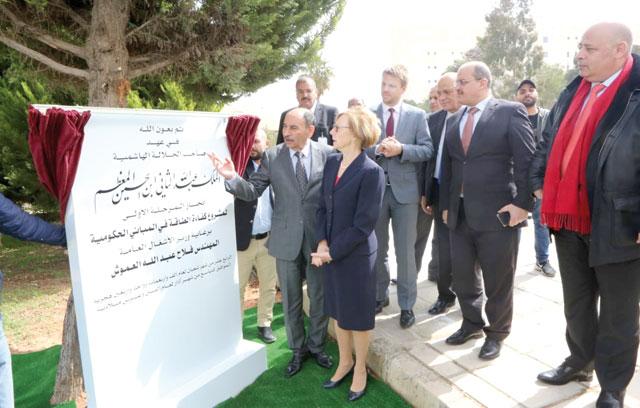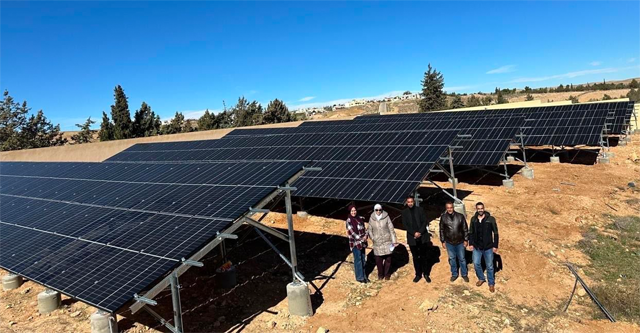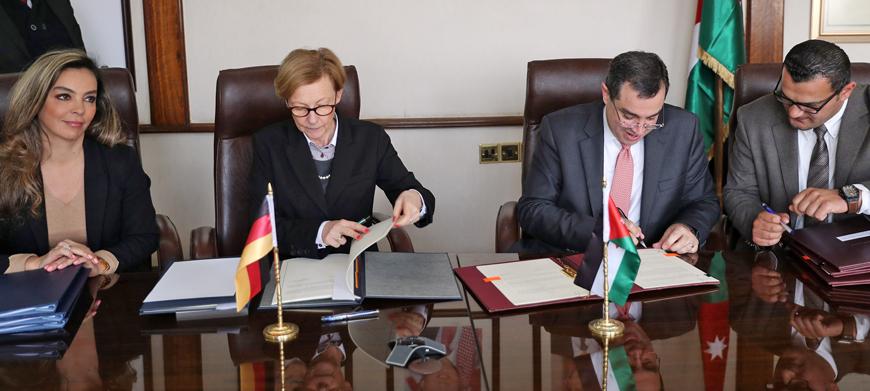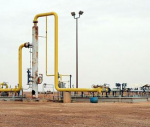You are here
'Pioneering project' introduces measures to halve electricity bills of public buildings
By Maria Weldali - Mar 10,2020 - Last updated at Mar 10,2020

The Ministry of Public Works and Housing launched the roll-out phase of the Energy Efficiency in Public Buildings project on Monday (Photo courtesy of the Ministry of Public Works and Housing)
AMMAN — The Ministry of Public Works and Housing on Monday launched the roll-out phase of the Energy Efficiency in Public Buildings (EEPB) project, which aims at reducing the energy bills of the Kingdom’s public buildings, which cause budget constraints.
Jordan has worked to establish comprehensive programmes and strategies to protect the environment and create sustainable economic development, Public Works Minister Falah Omosh said at the launch ceremony.
The EEPB project, he noted, is being executed by the Public Works Ministry in close cooperation with the education and health ministries.
German Development Bank (KfW) Director in Jordan Christian Schaub expressed his appreciation for the “strong commitment and excellent cooperation” of these parterning ministries.
Through the installation and activation of energy saving and management systems, such as advanced air conditioning systems, the project will attempt to reduce up to 50 per cent of the energy consumed in public buildings. It is being funded through a 15-million-euro development loan from KfW, according to event organisers.
The project is being introduced in two phases: The pilot phase, which just concluded, and the roll-out phase. Five public buildings were selected for the implementation of the first phase, serving as a prototype for the EEPB and providing data to support the energy monitoring process.
The five buildings rehabilitated in the pilot phase include the Ministry of Public Works and Housing, Al Nadeem Hospital in Madaba, Al Bashir Hospital’s obstetrics building, the Amman Health Centre and Thoqan Hindawi School for Boys, German Ambassador to Jordan Birgitta Maria Siefker-Eberle said during the launch event.
“Germany has a long-standing and strong cooperation with Jordan,” the ambassador noted, adding her country has “firmly” established itself as the second-largest bilateral donor to Jordan, providing over 800 million euros in support in 2019 alone.
She noted that the EEPB is a "pioneering project", as the Government of Jordan has led the way in reducing the consumption of energy in public buildings, which in turn has a “significant” environmental impact through cutting carbon emissions by about 13,000 tonnes.
The roll-out phase is set to see the implementation and installation of various energy-saving measures and technologies in 200 schools, hospitals and government buildings that have high energy consumption, according to organisers, who added that the project should be completed in 2021.
Related Articles
AMMAN — The Jordan Renewable Energy and Energy Efficiency Fund (JREEEF) of the Ministry of Energy and Mineral Resources on Tuesday signed an
AMMAN — The Renewable Energy and Energy Efficiency Fund (JREEEF) on Wednesday announced that it has completed the first phase of a nationwid
AMMAN — Jordan and Germany on Tuesday signed a 44-million-euro grant agreement to fund the Energy Supply for Host Communities and Syrian Ref



















